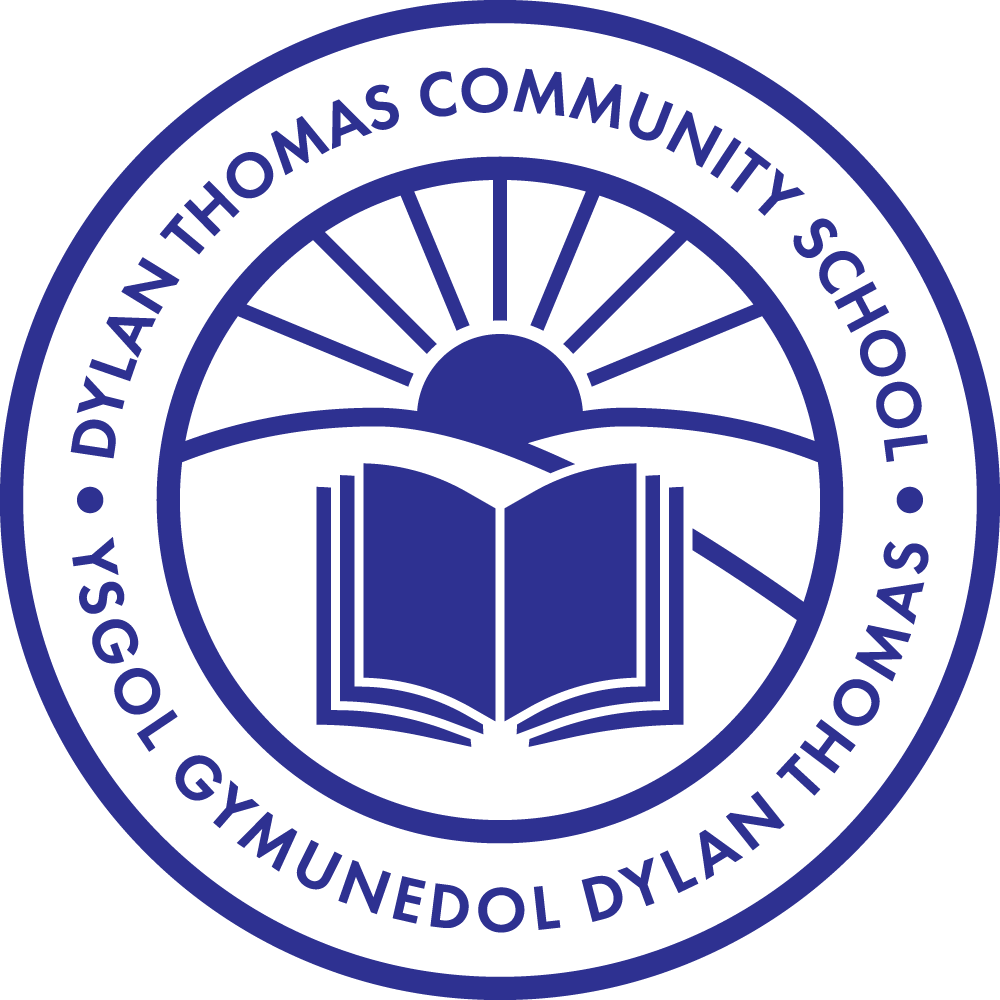
Learning at Dylan Thomas
At Dylan Thomas you will be taught within the 6 Areas of Learning. You will each have a timetable which shows your lessons for the week; there will be five lessons per day.
Languages Literacy and Communication
Cymraeg is one of the areas of Communications where all pupils continue their journey from primary school right through to a full course GCSE qualification in Year 11.
In Years 7-9 all pupils learn about a broad spectrum of topics e.g. Healthy lifestyle, holidays, leisure time and smart choices.
In Year 7, pupils will extend their knowledge of using different tenses, asking different questions and a range of sentence structures. There is equal focus on speaking, reading and writing in Welsh and lessons are aimed at developing all skills.
Lessons are interactive and engaging using games such as Task Magic & Plickers.
All pupils will have the opportunity to study Spanish in KS3. We start with the basics and by the end of KS3, pupils will have the ability to have useful conversations by sharing information, ideas and asking important questions.
Our aim is for pupils to be confident communicators in Spanish and to have an awareness of Spanish-speaking countries around the world, and their cultures. Pupils will also appreciate the importance of language learning in the global community we live in.
In year 7 we learn about how to introduce ourselves, the alphabet, numbers, days and months of the year. We then move on to describing family. You will start to learn different sentence structures and tenses and think about the connections between Spanish, English and Welsh.
What is LLC?
Languages, Literacy and Communication relates to the areas of reading, writing, speaking and listening. It refers to English, Welsh and other languages that you will learn whilst at school. Communication encourages learners to apply what they have learned in one language to another, allowing pupils to develop effective language skills that will be helpful throughout their lives.
Everyone knows what English is - right? At Dylan Thomas we aim to make English as fun and engaging as possible in order to fully develop the language and literacy skills of all pupils.
In Year 7, we will develop reading, writing and oracy through a variety of different topics. We will look at elements of Literature when we read and study The Boy in The Striped Pyjamas and NOW IS THE TIME FOR RUNNING. Other topics include Welsh castles, what it means to be welsh, playscript and poetry.
We have a varied approach to learning in the English department - some lessons will be quiet and focused, whilst others will be outrageously loud and energetic! Whatever happens, we ensure all learners fully engage with their English lessons and make solid progress as they move through the school.
Maths and ICT
ICT
Numeracy and Mathematics
In Mathematics you will be given the opportunity to explore the importance of the application of maths to solve problems in real-world contexts. It will allow you to develop the mathematical skills and concepts that underpin the world we live in. Through developing your numeracy and problem-solving skills you will have an appreciation for the importance of its application in professions such as finances, architecture and engineering.
In Year 7, you will be exploring many shape concepts, such as area and volume, algebra such as expressions and number skills such as decimals. These will be taught through a series of modules. You will be given the opportunity to try and apply these skills into an extended rich, real-life task every half-term. Through these rich tasks, we hope that it will improve your understanding of how to become an excellent problem solver and confident mathematician.
In ICT you will be given the opportunity to learn how to use creativity and computational thinking to understand and develop the future of technology. Complete practical work, enhance problem-solving skills and develop logical thinking.
In Year 7 you will learn about the importance of online safety along with the effects of cyber bullying. You will look into the world of social networking and the importance it has on today’s society. You will learn how to affectively research the internet to make magazine covers. You will create spreadsheets by using functions and formulas, graphs along with databases where you’ll be able to use simple and complex sorting options.
You will explore the world of Minceraft where you’ll get the chance to build your very own stadium. You will also get the opportunity to research the costings and plan the layout of the build.
Science and Technology
Science
What is Science and Technology?
Science and Technology covers a wide variety of subjects and skills. They are fundamental parts of the term STEM, used to refer to science, technology, engineering and mathematics.
In Science, alongside the traditional learning of topics, pupils will learn the skills required to devise, conduct and report on their own Scientific enquiries. They will also learn the skills needed to question the validity of information and “facts” that are presented to them.
The topics studied in Year 7 help form an understanding of how things work and are revisited in greater detail higher up in the school.
In Year 7 Science we start by learning how to use common lab equipment safely. Throughout the year, we learn to plan, collect data and report on our findings from experiments and investigations.
Pupils have the opportunity to learn about classification and ecological relationships and how living things work in Biology. In Chemistry, we look at matter and how it behaves. In Physics we look at forces with links to numeracy and simple reactions. All of these topics include practical work to improve the understanding of the topic, and are visited again higher up in the school.
The topics studied in Science lessons are complemented by topics that pupils study in their Technology lessons.










